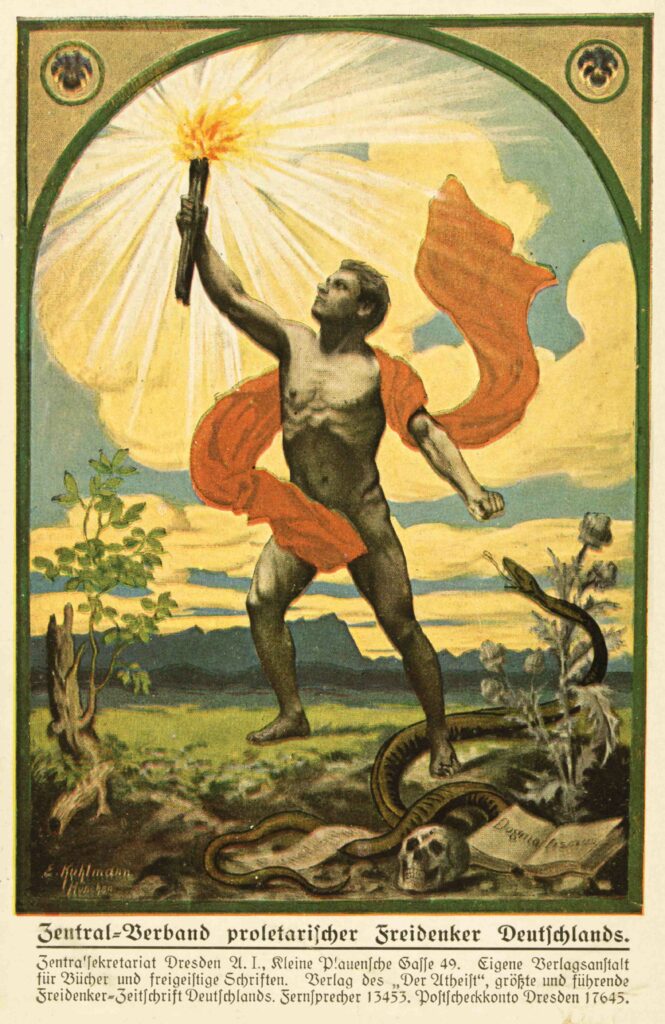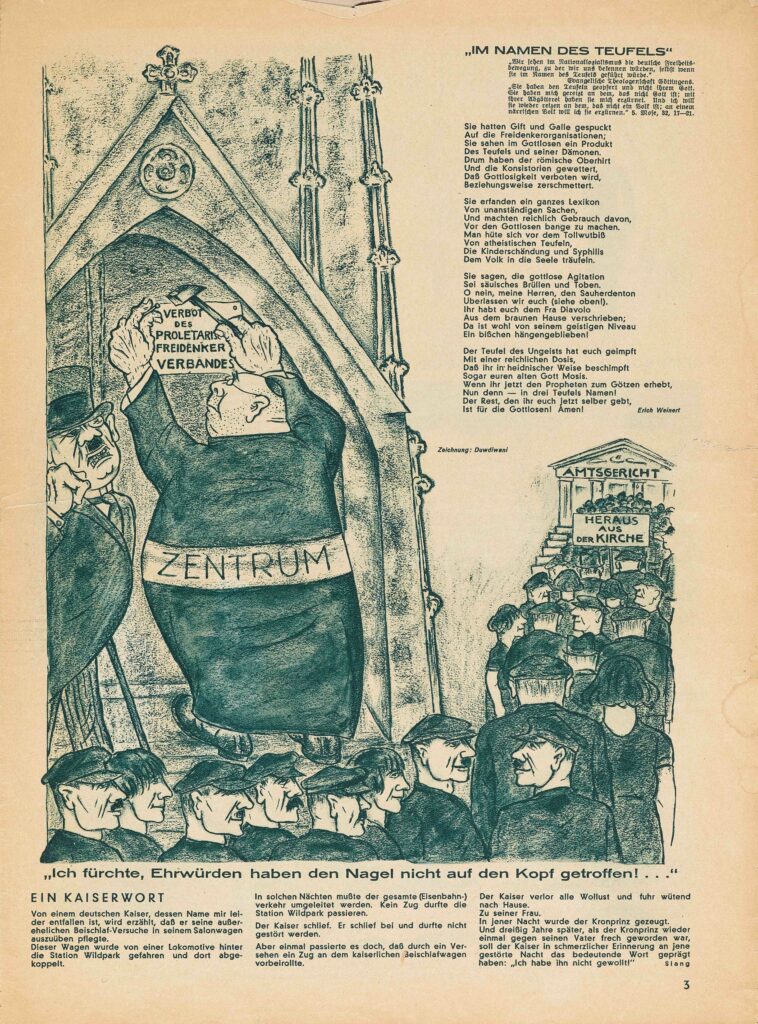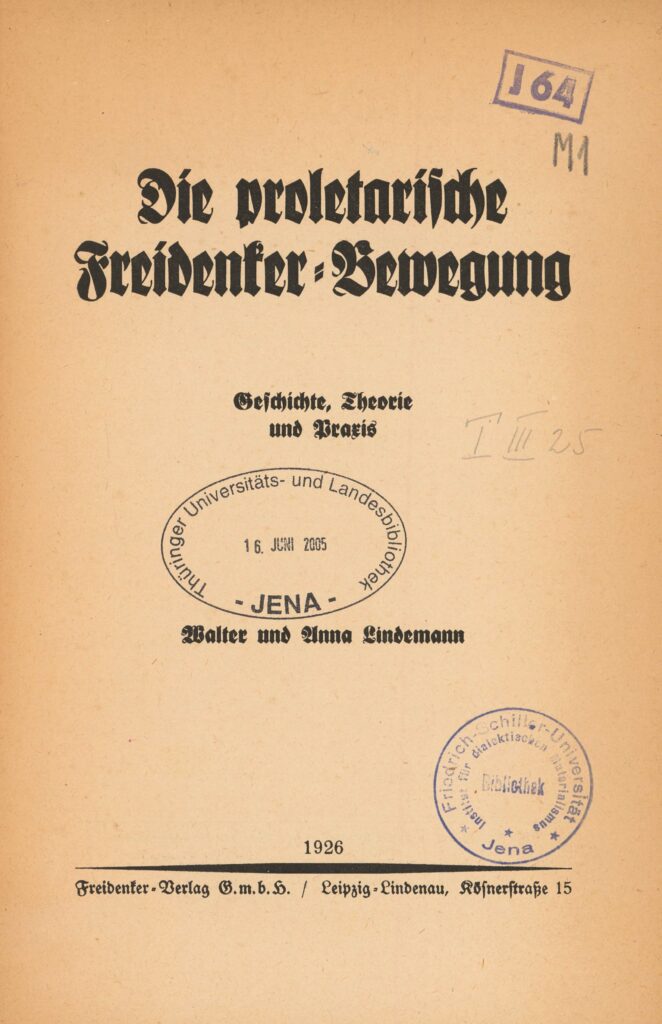Proletarian Free-Thinkers
Freethought first emerged in Europe during the Age of Enlightenment. Freethinkers insisted on a critical examination of all facts and rejected demands and commandments that were based only on faith; however, they did not fundamentally reject religion. A number of well-known figures were freethinkers, including zoologist Ernst Haeckel (1834–1919), women’s rights activist Helene Stöcker (1869–1943), sexologist Magnus Hirschfeld (1868–1935), writer Carl von Ossietzky (1889–1938), and Marxist Karl Liebknecht (1871–1919).
In 1908, the Central Association of German Freethinkers was founded in Eisenach to distinguish itself from bourgeois freethinkers. In 1911, it changed its name to the Central Association of Proletarian Freethinkers and in 1922 to the Community of Proletarian Freethinkers.
Atheist demands to separate church and state, establish community schools, implement a secular youth consecration instead of Communion or Confirmation, and legalize euthanasia and cremation were opposed by Christians and Jews alike.
On May 3, 1932, the Proletarian Freethinkers were banned by a decree by the Reich President. One year later, the National Socialists banned all associations of freethinkers.
“I'm afraid Your Honor didn't hit the nail on the head! ...”
With an allusion to the theses of the reformer Martin Luther in 1517, Duwdiwani criticized the ban on proletarian freethinkers in 1932. A poem by Erich Weinert (1890–1953) appeared next to this caricature. In the poem, Weinert enumerates the prejudices of those who opposed the Freethinkers who, in his opinion, had already committed themselves to Hitler – “Fra Diavolo from the brown house”.
Jochen-Christoph Kaiser: Arbeiterbewegung und organisierte Religionskritik. Proletarische Freidenkerverbände in Kaiserreich und Weimarer Republik. Stuttgart 1981.
Christoffer Leber: Arbeit am Welträtsel. Religion und Säkularität in der Monismusbewegung um 1900 (= Religiöse Kulturen im Europa der Neuzeit – Band 17). Göttingen 2020.
Anna u. Walter Lindemann: Die proletarische Freidenker-Bewegung. Geschichte, Theorie und Praxis. Leipzig 1926.


